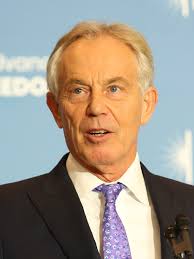
Introduction
Tony Blair, the former British Prime Minister, continues to shape contemporary political discourse nearly two decades after leaving office. His policies and leadership style, particularly during the late 1990s and early 2000s, have had lasting effects on the UK and beyond. Recognised for his role in modernising the Labour Party, Blair’s approach to governance included significant reforms that resonate today, making an examination of his legacy both relevant and critical.
Key Policies and Initiatives
During his tenure from 1997 to 2007, Blair implemented a wide array of policies that aimed to modernise Britain. His government introduced the minimum wage, invested heavily in the National Health Service (NHS), and championed education reforms that aimed to improve standards across schools. Blair’s commitment to public services and social justice was instrumental in reshaping the perceptions of the Labour Party, moving it closer to the centre ground of British politics.
Internationally, Blair is perhaps best known for his controversial decision to support the United States in the Iraq War in 2003. This decision severely divided public opinion and has had lasting implications for British foreign policy. It also shaped Blair’s legacy, with many critics citing it as a blight on his premiership.
Current Relevance and Impact
In recent discussions about political leadership, Blair’s approach to governance is increasingly being revisited. His emphasis on a centrist approach, known as ‘New Labour’, aimed to appeal to moderate voters and challenged traditional left-right politics. As political landscapes continue to shift, many politicians and analysts are looking back at Blair’s strategies in hopes of finding solutions to current divides, particularly in the context of Brexit and rising nationalism.
Conclusion
Tony Blair’s legacy remains a topic of significant discussion among political experts, historians, and the public. His innovative approaches to policy, although contentious, have influenced a generation of politicians. As global challenges evolve, Blair’s perspectives on governance, economic policy, and international relations will continue to be relevant. His experiences during a dynamic political era provide key insights into the workings of modern governance and the complexities of public sentiment. Understanding Blair’s impact offers valuable lessons for current and future leaders navigating today’s political landscape.
You may also like

The Role of Metro Systems in Modern Cities

Costa Coffee’s Commitment to Sustainability in 2023
